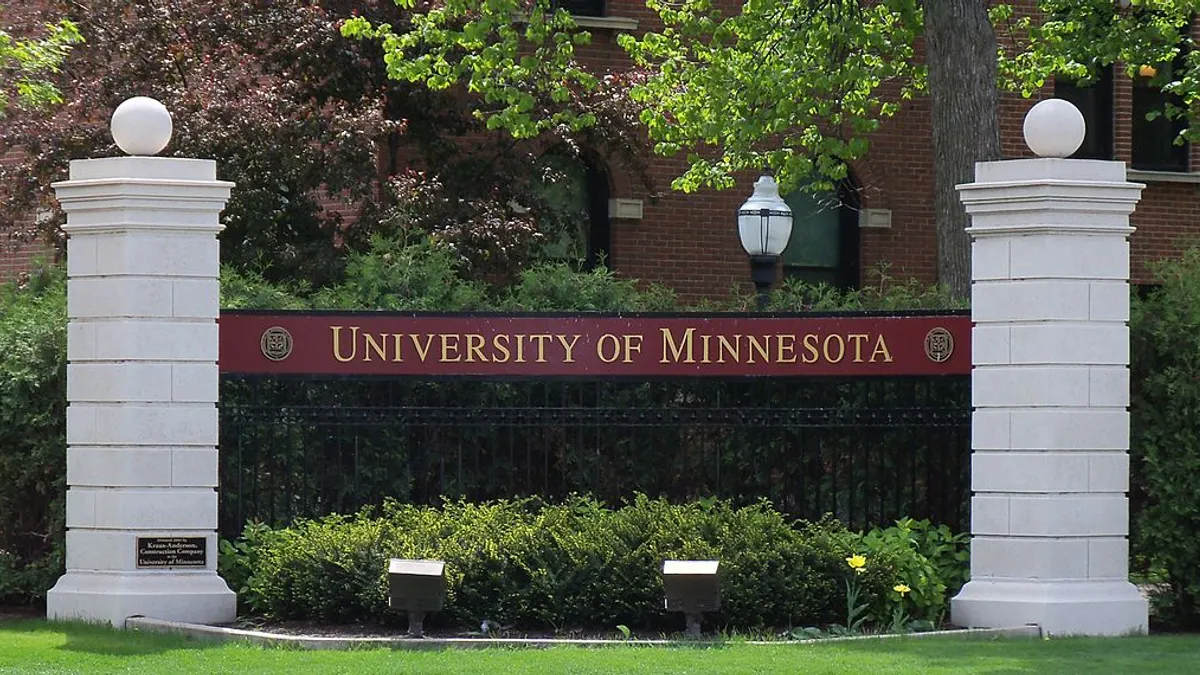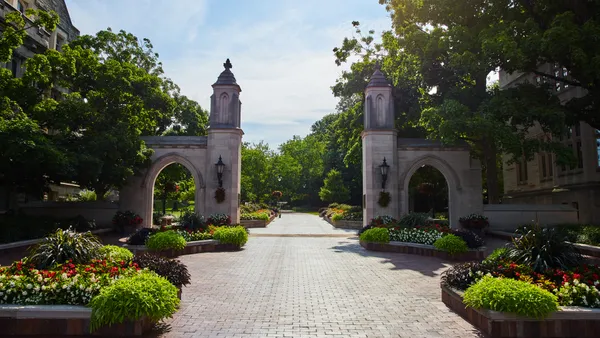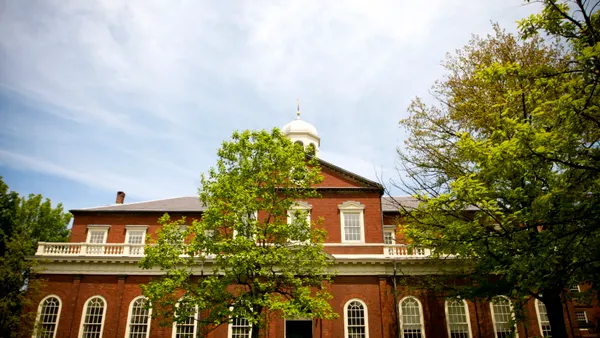Dive Brief:
- Incoming California Gov. Gavin Newsom may have to find more than $2 billion annually in the state budget to keep a promise to fund a cradle-to-career education system that includes two free years of community college, EdSource reported.
- The free college initiative would cost an estimated $92 million per year, in addition to the millions the state spends on fee waivers for low-income students. Newsom 's plan to provide universal preschool for 4-year-olds could cost as much as $2.35 billion annually. This year's budget calls for $46 million for students to attend tuition-free for one year.
- Newsom's campaign promises also include reinstating a coordinating council, which was disbanded in 2011, for the California Community Colleges, California State University and the University of California systems. California is one of two states that doesn't have such a body.
Dive Insight:
Newsom is not alone among governors facing challenges to their plans for higher education, but his plight brings to light two of the most significant issues faced by officials in higher education and state government: low levels of state funding for colleges and universities and calls to make at least two years of college tuition free, which former President Barack Obama had made a goal for all community colleges.
Data from the Center for Budget and Policy Priorities shows California is one of only four states that has increased its support for higher education since the Great Recession. It is providing slightly more (0.3%) than it did in 2008, while only three other states appropriated more: Hawaii (5.4%), Wyoming (7.8%) and North Dakota (16.1%).
Higher education funding in other states has gone down during that period, in some cases considerably. Arizona has slashed funding nearly 56% since 2008, followed by Louisiana (down 40.6%) and Pennsylvania and Oklahoma, where funding is about 37% lower in each state. The reduced funding has forced some colleges to close or consolidate and others to raise tuition, speed up fundraising, and make major cutbacks in faculty, staff and programs.
Some colleges are looking to free college programs to help support enrollment while making sure graduates stay in the state and join its workforce.
Last year, Rhode Island passed legislation offering two tuition-free years at the Community College of Rhode Island (CCRI). Students must be state residents and recent high school graduates, though students from any income bracket are eligible. State lawmakers didn't approve part of Gov. Gina Raimondo's proposal to extend the program to the state's four-year colleges, though doing so was part of Raimondo's re-election campaign, which was successful.
CCRI reported a 47% spike in full-time enrollment this fall, largely attributed to the free tuition program, though a small share of those students is on track to graduate in two years, the Providence Journal reported.
About 10 candidates for governor in the recent midterm elections supported free college, but advocates have faced challenges obtaining approval from state legislators.











